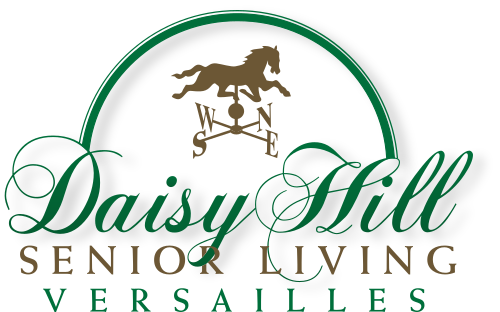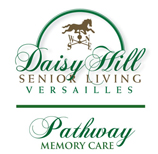Key Takeaways
- Retirement offers new opportunities to rediscover passions and explore fresh interests that support healthy aging.
- Setting meaningful goals, whether big or small, provides structure and purpose to your daily routine.
- Social connections through independent living communities help combat isolation and foster lasting friendships.
- Volunteering and giving back to your community creates a sense of fulfillment and lasting impact.
- Active retirement communities offer structured activities and support to help you make the most of this new chapter.
Life After Retirement
Retirement can feel overwhelming at first when you suddenly find yourself without the familiar rhythm of a workplace schedule. The freedom you’ve been looking forward to might initially leave you wondering how to fill your days with meaning and joy. Understanding how to choose a retirement community that supports your lifestyle goals can provide helpful direction during this transition.
You can enjoy life after retirement by embracing purposeful activities, nurturing social connections, and creating structure that supports your physical and emotional well-being through community engagement and personal growth. Many seniors find that life in an independent living community provides the ideal balance of freedom and supportive amenities to make their retirement years truly fulfilling.
Finding Purpose in Your Retirement Life
Without the structure of work meetings and deadlines, retirement can initially feel like a blank canvas—exciting but sometimes intimidating. Having a sense of purpose provides the motivation you need to wake up each morning with enthusiasm. This purpose looks different for everyone in a retirement community setting, whether it’s caring for grandchildren, pursuing creative projects, or supporting causes close to your heart.
Why Structure Matters in Independent Living
Daily routines provide a foundation that supports your overall well-being during retirement. When you have regular activities and commitments, you create a framework that brings stability to your new lifestyle. Having something meaningful to look forward to each day—whether it’s a morning coffee with neighbors or an afternoon art class—gives your days rhythm and purpose.
Structure doesn’t mean rigid scheduling. Instead, it means creating gentle routines that support healthy aging while allowing flexibility for spontaneous adventures. This balance helps you maintain independence while enjoying the security that comes with purposeful daily activities.
Rediscover Passions and Explore New Interests
Retirement gives you the gift of time to reconnect with hobbies you may have set aside during your working years. That painting easel in the closet or the guitar gathering dust can become sources of joy again. Returning to activities you once loved often feels like greeting an old friend—familiar yet exciting in new ways.
Trying completely new activities keeps your brain engaged and supports cognitive health. Learning stimulates neural pathways and can improve memory and problem-solving skills. Many retirement communities offer classes and workshops that make it easy to explore interests you’ve never had time for before.
Hobbies That Support Active Aging
Creative outlets provide wonderful opportunities for self-expression and relaxation. Painting, music, writing, and crafts offer ways to create something beautiful while keeping your mind active. Studies highlight how music therapy improves the quality of life for older adults through enhanced social interaction and creativity.
Physical activities like gardening, walking groups, or gentle yoga classes keep your body moving while connecting you with others. Movement supports both physical health and mental well-being. Many retirement communities offer fitness programs designed specifically for active adults who want to stay strong and mobile. CDC recommendations for older adults emphasize the importance of regular physical activity for maintaining independence.
Trying Something Completely New
Stepping outside your comfort zone can be liberating during retirement. You might discover talents you never knew you had or develop unexpected passions.
Group classes make learning new skills more enjoyable and less intimidating. You’ll meet people who share similar interests while developing new abilities together. The social aspect of learning creates natural friendships and support systems that enrich your retirement experience.
Setting Goals That Give Your Days Direction
Having objectives to work toward during retirement provides structure and creates opportunities for personal growth and achievement. Goals don’t need to be overwhelming—they can be as simple as reading a certain number of books each month or as ambitious as learning a new language. The key is choosing objectives that excite and motivate you.
Examples of Meaningful Retirement Goals
- Fitness milestones like training for a 5K walk
- Creative projects, such as learning new art techniques
- Skill development in cooking or gardening
- Home improvement or decorating projects

Building Social Connections in Your Retirement Community
Social interactions play a significant role in emotional health and overall happiness during retirement. Retirement provides the time to nurture existing friendships while opening doors to meet new people who share your interests and values. Research shows that being more social makes us happier through quality interactions and meaningful conversations.
Living in an active retirement community naturally creates opportunities for social engagement. Shared spaces, organized activities, and common interests provide natural meeting points. These connections often develop into deep friendships that add richness to your retirement years.
Ways to Connect with Fellow Residents
- Participating in community activities and game nights
- Joining group fitness classes or hobby clubs
- Hosting gatherings or coffee chats with neighbors
- Attending scheduled social events and celebrations
Giving Back Through Community Involvement
Volunteering during retirement offers purpose and fulfillment by using your skills and experience to make a meaningful impact. Retirement communities often provide opportunities for volunteering, fostering connections and shared experiences.
Options could include helping at animal shelters, participating in environmental cleanups, supporting food drives, or aiding first responders and local organizations. These activities not only benefit others but also align with your interests and schedule, creating a rewarding and flexible way to stay engaged.
Making the Most of Active Adult Living
Retirement is your chance to redefine independence and purpose, focusing on what truly matters. Senior care communities offer structure, activities, and social connections, creating an ideal environment to explore interests, build relationships, and enjoy a fulfilling lifestyle.
Your Next Steps Toward Fulfilling Retirement
Exploring what active independent living can offer starts with seeing these communities firsthand. Daisy Hill Senior Living creates environments where residents don’t just live—they thrive through personalized care and meaningful daily experiences.
Schedule a community tour to experience our amenities and programs firsthand. You’ll discover how our approach to senior care supports the active, purposeful retirement lifestyle you deserve. Contact our team today to learn more about creating your most fulfilling retirement chapter with us.



